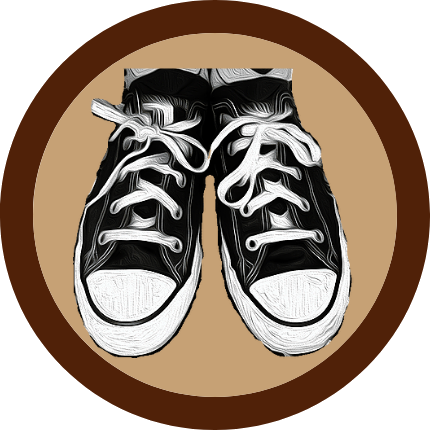This IS a Story to Pass On
**Content warning: this newsletter has mentions of anti-Semitism, racism, and race-based violence.
I am huge Toni Morrison fan. Her novel Beloved was one of the most beautiful, challenging, and influential novels I read and taught. It’s about so much: enslavement, trauma, resistance, liberation, healing, love, and legacy. Without spoiling the ending, I want to share a refrain from the final page of the book: “This is not a story to pass on.”
That sentence, in one form or another, is repeated throughout the final page. At first glance it may appear as if the sentence means “don’t pass along this story.” In other words, don’t pass along the injustices of this generation to the next one. That’s one way to read this phrasing.
There’s another way to read it, too: do not skip this story—this is not a story to pass over; in other words, make sure you don’t forget this story.
Some people won’t have the opportunity to read that final passage much less discuss its double meanings, because in some places, Beloved is banned, perhaps forgotten.
Breaking the Cycle of Trauma
As a grandchild of Holocaust survivors, I was raised with the value of never forgetting what happened to those who were murdered in Europe during World War II, including my family members. My grandparents both narrowly escaped their own demise, lost parents and siblings, eventually made their way to the United States. From a young age, I was urged keep passing along their story so future generations could learn from the unthinkable, in hopes of not repeating it.
And I did. I made sure I didn’t pass over this part of my family history. It is both a deeply personal and painful story, but also, it was important for me to teach current generations about trauma, resistance, healing, and breaking the cycle of oppression and anti-Semitism for future generations. Telling my family’s story also helps me heal from intergenerational wounds I don’t want to pass on.
Whenever I see or experience an injustice, particularly injustices committed against those from historically marginalized backgrounds, I am compelled to act in some way. I don’t forget what I’ve learned from my own history. But not forgetting about one aspect of my identity doesn’t make me immune to the other privileged parts of me that have been the oppressor. This is why ongoing learning and a comprehensive, complex understanding of identity, socialization, and history is crucial to breaking the collective traumas western, colonial nations have enacted—and in many ways, continue to enact.
I do my learning through workshops and groups I’m a part of. I also do my learning from the stories I experience from those who are different from me, whether through the books I read or one-on-one interactions with others, leaving that conversation feeling more connected and recognizing that no person, no matter how they identify, is a monolith. Each of us deserves the dignity of our complexity and humanity—and to feel affirmed along the way. And we need storytelling to break the cycle of traumas this (and prior) generations have experienced. But we can’t even center human dignity if we’re erasing people from the narrative.
An Inflection Point
As various state legislatures propose and pass bills that ban books, eradicate whole swaths of history, deny gender affirming care and bodily autonomy (while increasing access to firearms), we are at a crucial inflection point of crafting our legacy for future generations. As the planet warms and tensions mount among those who believe human dignity is a ballot-box issue, the children are watching. They are taking their cues from the stories we pass along, and the stories we neglect to tell. All the while, hate is on the rise. But so are acts of resistance.
Yes, race-based violence continues to skyrocket, and racism, anti-Semitism, xenophobia, transphobia, and homophobia are at an all-time high. I won’t deny it’s a scary time. But if fear is allowed to reign over acts of resistance, history will repeat itself. And there is so much resistance in the form of storytelling: those who won’t be silenced, who push back against bans, and who take their desire for dignity to the voting booth so they can pass along their stories to future generations.
Storytelling as an Act of Resistance
The workshops I lead are deceptively simple because the messages I share are deceptively simple: begin with relationships and tell stories. Human connection is the vehicle for transformation in any context. Storytelling is a path to breaking the destructive cycle we’re in.
Connection requires us to slow down, pay attention, care about the dignity and humanity of those we’re sitting across from (or alongside if you’re in Zoom). Connection and storytelling give us an opportunity to question our assumptions, our socialization and biases, and dismantle fixed ideas about one another.
I often say you never know what’s going on for someone else unless you have the opportunity to learn their story. This summer, I encourage you to invite a colleague or friend to coffee (or tea or ice cream) and take the time to tell your stories to one another. Or purchase a banned book from an independent book store (perhaps Beloved) and start a book group. Or donate to a cause that resists banning people’s stories. Or start a little free library and fill it with stories you want to pass on.
Whatever you do, add human dignity to the center of our collective narrative.
